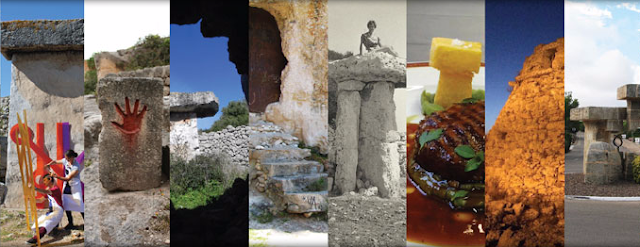Jaime's rant: November... Conflict resolution and social implication
 |
| 'Facadism' in Valparaíso, Chile |
Although I came back over a month ago, Chile is still in my mind. Among other things, when I was preparing this entry, the photo and a conversation I quoted in my last piece. If there is an aspect we want to raise during the conference, is the implication of local communities in (world) heritage management. Unfortunately, in many cases, management is still merely technical and people have no voice in the process. Valparaíso after the earthquake has become an example for this, mainly due to the conflict generated with locals when dozens of people who were part of the social and cultural frame of the city, were pulled away.
I often have the feeling that when we speak about heritage, we are only thinking in the site, the monument, the piece, or maybe the landscape, but never about the people who belong to them, who are a significant part of their daily lives; and I am not talking about the managers. And this creates a conflict.
If we speak now about conflict and heritage, ISIS and their looting for the black market to fund their holy war, or maybe the new center Unesco will open in Bamiyan (Afghanistan). Some will even mention the open conflict, also in culture and archaeology, between Israel and Palestine. But we do not see this other conflict without weapons, that takes place everyday, everywhere in every site declared World Heritage. The conflict of routine and management.
«Sorry madame, but you cannot refurbish your bathroom... it is heritage» a friend's mother was said some years ago in a city whose archaeological compound was declared. No more reasons or explanations. When heritage managers become an instrumentalized repression weapon against the rights of any citizen, something is failing. I am aware about the words I am using, expecting critique, but I want to open a conflict with my colleagues, because if we keep moving this way, we will end up managing nothing.
Why do we forget people? Is heritage over everything? When I speak about 'facadism' (see image), I want to state a metaphor about heritage everyday. Facades without a context, sites without people, cities without citizens. This conference aims to delve into best practices on World Heritage, but we cannot talk about best practices when people is not represented in the decision taking process. Cultural heritage must be managed in its context, with its conflicts.
This is why the theme is fundamental for the conference. Because conflict happens everyday, at every level. But, overall, because solving and managing these conflicts is the basis of our heritage's future. A heritage that is not valued, does not have sense. If we are not able to engage people and communities in the management, and we are not able to solve and avoid the conflicts we create everyday, we will soon manage smoke.



Comentarios
Publicar un comentario